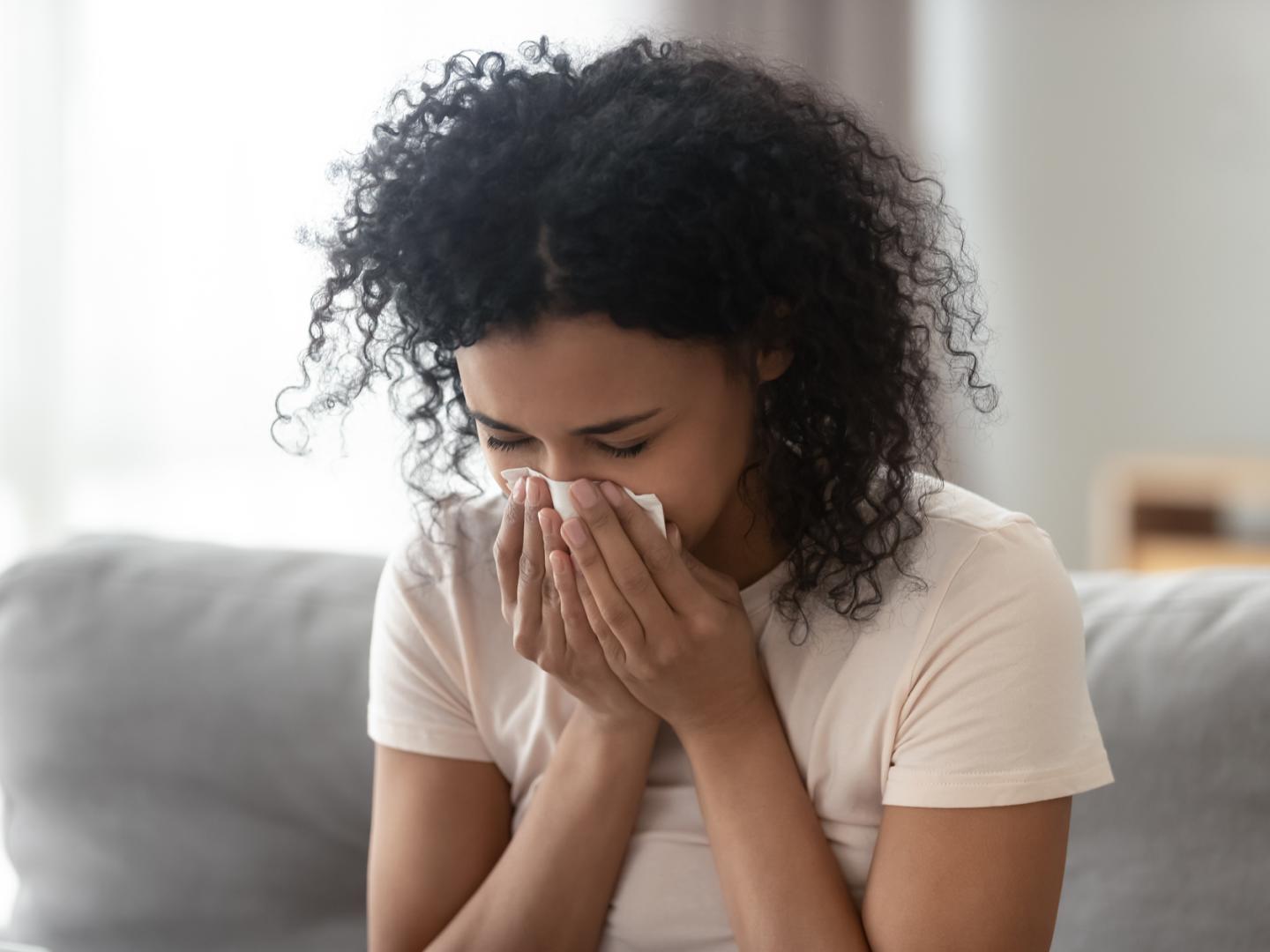About fifty million Americans suffer from allergies, and if you’re one of them, you know how troublesome the symptoms can be. This article will overview everything you need to know to better cope with pesky allergies, kick them to the curb, and get on with your day-to-day routine. Keep reading!

Knowing how allergies work—their triggers and symptoms—is a life changer in learning how to manage them on a seasonally or even a daily basis. For example, it’s pretty commonly understood that weather conditions are associated with many allergy symptoms because different seasons bring different allergens. Molds (fungus) tend to grow in winter, pollen is everywhere in the spring and poison ivy in summer. This general description makes it pretty simple to understand what actually causes allergy symptoms and can help you make a customised plan to prevent an extreme allergic attack.
What Exactly is an Allergy?
Allergy is not a disease itself. Instead, it encompasses a wide range of conditions. An allergy occurs when your immune system mistakenly perceives a harmless substance that has touched or entered your body as a threat/danger and attacks it. [1]
Types of Allergies
There are different types of allergies. Some allergies are seasonal and others are year-round. Here are some main types of allergies with their major symptoms and triggers.
- Drug Allergy
Drug allergy is a less common type of allergy and occurs in a small number of people around the world. A drug allergy is the abnormal reaction of the body’s immune system to a medication. No matter if the drug is administered intravenously, in the form of pills or liquid syrup, one may experience symptoms of allergy. [2]
Symptoms include skin rash or hives shortly after taking a medicine, fever, itching, wheezing sounds, breathing difficulty and body swelling. It may also lead to anaphylaxis which is a severe allergic reaction. Drugs including aspirin, ibuprofen, NSAIDS and penicillin are common triggers.
- Food Allergy
Nearly everyone experiences food intolerance at some point in their lives. According to the centre of disease control and prevention, 4%-6% of children and 4% of adults are affected by food allergies. [3]
The symptoms can vary from mild to worse. They include vomiting, stomach cramps, hives, shortness of breath, cough, shocks, swallowing difficulty and weak pulse. Swelling of the tongue is also common along with skin discolouration and fainting.
Eggs, milk, peanuts, tree nuts, wheat, fish and soy are more likely to cause reactions.
- Insect Allergy
Wasps, yellow jackets, honey bees and hornets cause adverse reactions. Insect sting allergy symptoms include pain, skin rash, itching, hives swelling of the tongue, dizziness and flushing. The severity of the symptoms can vary from person to person.
- Skin Allergy
There are millions of people who suffer with a skin allergy. Red, bumpy and itchy skin can be both painful and embarrassing.
Your skin might cause a reaction to certain plants, medication or food. Other causes may include illness, such as in the case of measles and chickenpox you can get skin rashes. Your skin may feel itchy, bumpy and red. Hives are also commonly seen. You can get small blisters on your skin that ooze a liquid.
- Dust Allergy
Dust allergy is more common nowadays. Its symptoms are present year-round. Dust allergy can also trigger asthma.
Sneezing, runny/stuffy nose and red itchy eyes are the common symptoms. Besides, you may suffer shortness of breath, wheezing and tightness in the chest. Pollen, molds and cockroaches can trigger dust allergy.
Best Over-The-Counter Medications for Allergies
You can resolve your symptoms with over the counter medication but you must first know which drug is right for you.
- Antihistamine
Antihistamines are probably the best medication to treat your allergy and have been used for years. You can take pills, liquids, eye drops or nasal spray. [4]
First-generation old Antihistamine can cause drowsiness. These medication work by blocking the action of histamine (a chemical substance)
- Decongestants
OTC decongestants are beneficial in relieving symptoms of allergy. They help reduce inflammation in the nasal passage, such as pseudoephedrine. Always use a decongestant on doctors prescriptions only. These drugs can increase blood pressure.
- Corticosteroids
Steroids are best to reduce swelling and inflammation associated with allergy. If antihistamines don’t work for you steroids are a good option. Beclomethasone, fluticasone and triamcinolone are commonly used for allergies.
Over-the-counter medications can reduce your symptoms within a few hours. Through the right medication, you can choose to minimise the impact of allergens on your health. Avoiding allergens and making a customised medication plan can make seasonal changes less stressful and more enjoyable.
[1] “WebMD Allergies Health Center – Find Allergy Information and Latest Health News.” WebMD. https://www.webmd.com/allergies/default.htm.
[2] “Drug Allergy.” Mayo Clinic. December 16, 2017. https://www.mayoclinic.org/diseases-conditions/drug-allergy/symptoms-causes/syc-20371835.
[3] “Food Allergies: Causes, Symptoms & Treatment.” ACAAI Public Website. https://acaai.org/allergies/types/food-allergy.
[4] “Allergy Medicine: Types and Alternatives.” Medical News Today. https://www.medicalnewstoday.com/articles/311845.
